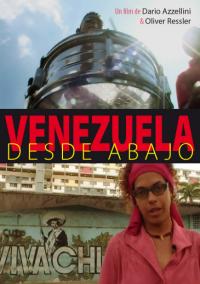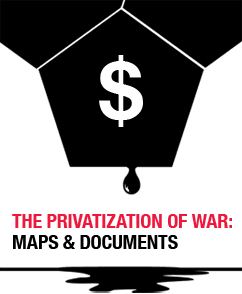Venezuela from Below

- Venezuela from Below
- Autor: Dario Azzellini & Oliver Ressler
- Länge: 67Minuten
- Veröffentlicht 2004
- Kaufen
In Venezuela, a profound social transformation identified as the Bolivarian process has been underway since Hugo Chávez's governmental takeover in 1998. It concerns a broad process of self organization, from which has developed a progressive constitution, a labor law, new educational possibilities, and a number of further reforms for the impoverished majority of the population of what is potentially a wealthy state. The government's politics, which take an open stance against neo-liberalism, have experienced vehement rejection from Venezuela's major private industries and from the U.S., expressed in two attempted coups and boycotts. Nonetheless, Chávez and his government enjoy the trust of the majority of the population. The society is heavily politicized; many people who had never before thought of what they wanted to change are now a part of a profound transformation taking place in the country.
In the film "Venezuela from Below," the true actors in the social process are able to speak: the grassroots. After an introduction by philosopher Carlos Lazo, workers from the oil company PDVSA in Puerto La Cruz report how in 2002/2003 they protected the refinery from breaking down during the oil sabotage, which was pawned off as a strike, and how they were able to reinstate oil production. Several farmers from a newly founded cooperative in Aragua report on their process of self organization, on the literacy campaign, and how things should continue. A women's bank project in Miranda and several loan recipients from Caracas' disadvantaged district, 23 de Enero, present their projects. Indígena community members near the Orinoco river in Bolívar speak about how their demands and struggles are reflected in the constitution and what has changed for them. Workers from the occupied National Valve Company in Los Teques and the paper production company Venepal in Carabobo - which was occupied by 350 workers after the owners drove it to bankruptcy, and which now, after a partial agreement, is running production again - speak about corrupt unions, labor control, and their struggles. Protagonists in the revolutionary movement Tupamaro, the cultural foundation Simón Bolívar, the leftist website www.23.net, and the Bolivarian Circle Abrebrecha from 23 de Enero report on their work and what has changed for them through the social revolutions. They are the people of the grassroots and they speak about what they did and what they are doing, how they feel about the Bolivarian process, about their expectations and ideas. They see themselves as part of the process that is underway, but also problematize numerous points. The search for a social and economic model beyond neo-liberalism is no easy terrain; there are currently no successful, tested alternatives. The protagonists in the Bolivarian process have, however, set upon a path from which there is no return.
The film is available in Spanish, with English or with German subtitles.
Links zu diesem Artikel:























